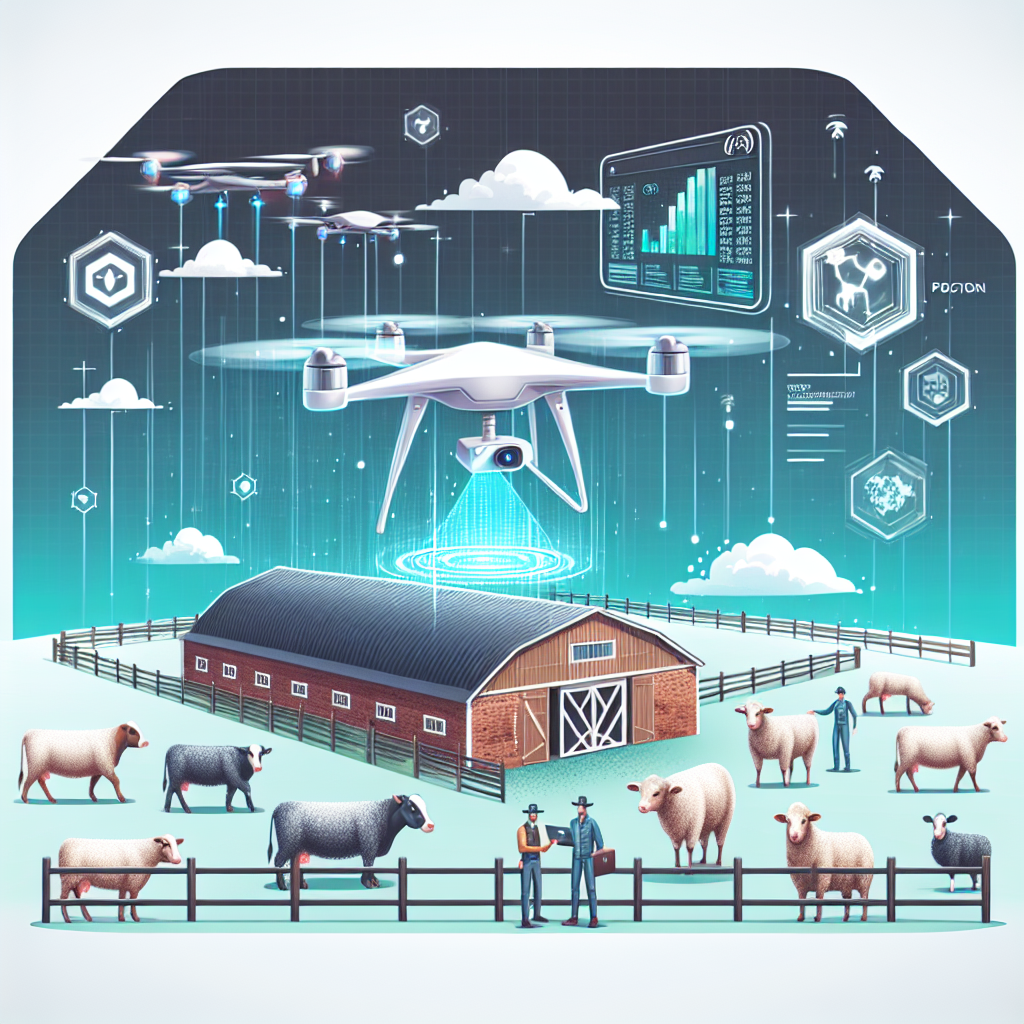Leveraging AI for Precision Livestock Farming
In recent years, the agricultural industry has undergone a significant transformation with the adoption of cutting-edge technologies such as artificial intelligence (AI). One of the key areas where AI is revolutionizing the way we approach agriculture is precision livestock farming. By leveraging AI technologies, farmers are able to monitor, manage, and optimize various aspects of livestock farming with unprecedented precision and efficiency.
What is Precision Livestock Farming?
Precision livestock farming is a concept that involves the use of advanced technologies such as AI, sensors, and data analytics to monitor and manage livestock in a more precise and efficient manner. By collecting real-time data on factors such as animal health, behavior, and environment, farmers are able to make informed decisions that can improve the overall well-being of their livestock, increase productivity, and reduce costs.
AI plays a crucial role in precision livestock farming by analyzing large volumes of data to identify patterns and trends that can help farmers optimize their farming practices. For example, AI algorithms can analyze data from sensors attached to livestock to detect early signs of disease or stress, allowing farmers to take proactive measures to prevent outbreaks and improve animal welfare.
Benefits of Leveraging AI for Precision Livestock Farming
There are numerous benefits to leveraging AI for precision livestock farming, including:
1. Improved Animal Health: By monitoring key indicators of animal health in real-time, such as body temperature, heart rate, and activity levels, farmers can detect health issues early and provide timely treatment, resulting in healthier and more productive livestock.
2. Enhanced Productivity: AI can help farmers optimize feeding schedules, breeding programs, and other management practices to maximize the productivity of their livestock. By analyzing data on factors such as growth rates, feed efficiency, and reproductive performance, AI can help farmers make data-driven decisions that lead to improved outcomes.
3. Cost Savings: By identifying inefficiencies in livestock management practices and optimizing resource allocation, AI can help farmers reduce costs and increase profitability. For example, AI can help farmers optimize feed formulations to minimize waste and improve feed efficiency, resulting in cost savings and increased profitability.
4. Environmental Sustainability: Precision livestock farming can help farmers reduce their environmental impact by optimizing resource use and minimizing waste. By monitoring factors such as water consumption, greenhouse gas emissions, and nutrient runoff, farmers can implement sustainable practices that protect the environment while maintaining productivity.
5. Data-Driven Decision Making: AI enables farmers to make more informed decisions by analyzing large volumes of data and identifying trends that may not be apparent to the naked eye. By leveraging AI-powered analytics tools, farmers can gain valuable insights into their operations and make decisions that lead to improved outcomes.
FAQs
Q: How does AI technology help farmers monitor the health of their livestock?
A: AI technology can help farmers monitor the health of their livestock by analyzing data from sensors attached to the animals, such as body temperature, heart rate, and activity levels. By detecting changes in these key indicators, AI algorithms can alert farmers to potential health issues before they become serious, allowing for timely intervention.
Q: How can AI optimize feeding schedules for livestock?
A: AI can optimize feeding schedules for livestock by analyzing data on factors such as growth rates, feed efficiency, and nutrient requirements. By taking into account individual animal characteristics and environmental conditions, AI algorithms can recommend personalized feeding schedules that maximize productivity and minimize waste.
Q: What are some examples of AI-powered tools that can help farmers with precision livestock farming?
A: Some examples of AI-powered tools that can help farmers with precision livestock farming include automated monitoring systems that track animal health and behavior, predictive analytics tools that forecast disease outbreaks and optimize breeding programs, and robotic systems that automate tasks such as feeding and milking.
Q: How can farmers get started with implementing AI for precision livestock farming?
A: Farmers can get started with implementing AI for precision livestock farming by partnering with technology providers that specialize in agricultural AI solutions. These providers can help farmers design and implement customized AI systems that meet their specific needs and goals, providing training and support to ensure successful adoption.
In conclusion, leveraging AI for precision livestock farming offers numerous benefits to farmers, including improved animal health, enhanced productivity, cost savings, environmental sustainability, and data-driven decision-making. By harnessing the power of AI technologies, farmers can optimize their livestock management practices and achieve better outcomes for their operations. As the agricultural industry continues to embrace digital transformation, precision livestock farming will play an increasingly important role in ensuring the sustainability and success of modern farming operations.

